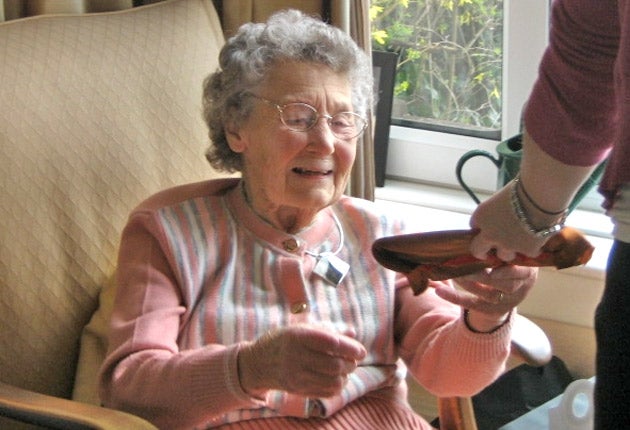Doctor Eileen Crofton: Physician and author who uncovered a story of wartime heroism

Your support helps us to tell the story
From reproductive rights to climate change to Big Tech, The Independent is on the ground when the story is developing. Whether it's investigating the financials of Elon Musk's pro-Trump PAC or producing our latest documentary, 'The A Word', which shines a light on the American women fighting for reproductive rights, we know how important it is to parse out the facts from the messaging.
At such a critical moment in US history, we need reporters on the ground. Your donation allows us to keep sending journalists to speak to both sides of the story.
The Independent is trusted by Americans across the entire political spectrum. And unlike many other quality news outlets, we choose not to lock Americans out of our reporting and analysis with paywalls. We believe quality journalism should be available to everyone, paid for by those who can afford it.
Your support makes all the difference.By writing her book, The Women of Royaumont: A Scottish women's hospital on the western front, Dr Eileen Crofton, a medical doctor with no training in historical research, rescued a poignant piece of history which but for her book would have unquestionably passed into oblivion. Moreover, she did this work in her seventies.
The Scottish Women's Hospital of the First World War was the inspiration of one remarkable woman, Dr Elsie Inglis. An honorary secretary of the Scottish Federation of Women's Suffrage Societies, she was keen to demonstrate what woman could contribute to the war effort, particularly in the field of medicine, where they might have an opportunity to show their skills in areas other than the traditional ones of catering for women and children. With the Federation's backing, she offered a 100-bed unit staffed entirely by women to the War Office or to the Red Cross. Both offers were summarily rejected. Undeterred, with her committee's backing she offered units to the French and Serbian authorities. Both offers were accepted.
Crofton's book tells the story of the hospital that went to France to the beautiful Abbey of Royaumont, operating continuously from January 1915 to March 1919 under another remarkable woman, Frances Ivens, chief medical officer. Being close to the front line, it received extremely severe casualties. The initial 100 beds increased to 600 at the request of the French authorities, who recognised it as one of our most efficient hospitals. It was heavily involved in the offensives of 1915, the Somme battles of 1916 and the final struggles of 1918, when its forward hospital was overrun.
Apart from official records a wealth of reminiscences gathered by Crofton revealed the experiences, personalities and relationships of the women involved. Unusually, there are vivid descriptions of many nationalities and their interaction with staff. Quieter interludes between hectic burst of activity revealed another, happier, side of the life of the hospital.
It was one of the most memorable visits of my life to accompany, with my wife, Sir John Crofton, the distinguished tuberculosis expert, and Eileen, to Royaumont on the occasion of the reunion of relatives of the hospital's nurses and doctors. Our Australian cousin Dr Elsie Dalyell, an expert on rickets and related diseases, was one of those who had worked in the hospital.
Eileen Crofton was educated at North London Collegiate School and Somerville College, Oxford. She was the daughter of an engineer who became a patent engineer and then worked in the Patent Office. She qualified in 1943 and became a captain in the RAMC (1944-45). During a posting to Northern Ireland immediately after the war she met John Crofton and they had five children, before moving to Edinburgh in 1952, where her husband was appointed Professor of Respiratory Diseases. (In 2010 an official Chair was named by the university as the Sir John Crofton Chair, the last public engagement to which Eileen came.) In 1962 Eileen Crofton resumed her career as research assistant in medical epidemiology and medical officer of the British Red Cross Society.
In 1973, she became the first medical director of Action on Smoking and Health Scotland, work for which she was awarded an MBE. She served on the World Health Organisation's expert committee on smoking from 1975 to 1987 and lectured nationally and internationally on tobacco control topics. After retirement she became involved in women's issues as a member and vice-chairman of the Scottish Convention of Women. She wrote many special medical papers.
Tam Dalyell
Eileen Mercer, physician and author: born Liverpool 28 March 1919; married 1945 John Crofton (Kt 1977) (three daughters, two sons); MBE 1984; died Edinburgh 8 October 2010.
Join our commenting forum
Join thought-provoking conversations, follow other Independent readers and see their replies
Comments